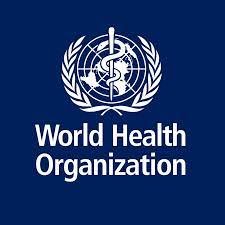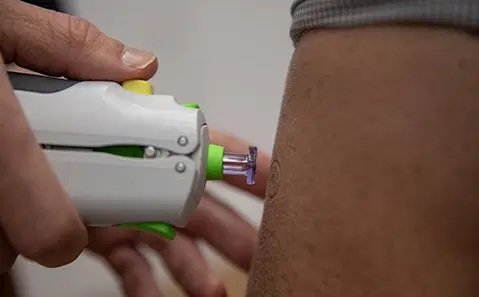For the Federal government of Nigeria, alternative vaccination strategies to attain the ‘zero – dose children’ target is a work plan as it unveiled about a fortnight ago. But the intended vaccination revolution seems to have made little progress, raising more pertinent questions begging for answers. To all intent and purposes, this is within the realm of public health. A global standard practice, countries like South Africa, India have already taken a quantum leap in this regard. Shrouding the plans in absolute secrecy (relevant government officials maintained sealed lips when our correspondent sought clarifications) therefore, leaves much to be desired. Gom Mirian writes.

Vaccine Revolution
Nigeria faces a significant challenge with over 2.1 million unvaccinated children, a situation worsened by barriers such as fear of needles, accessibility issues, and entrenched cultural beliefs. Despite the promise of innovative approaches like needle-free vaccination methods, the initiative remains largely obscured by secrecy, undermining its potential to transform immunisation coverage across the country.
The Promise of Needle-Free Vaccination
Needle-free immunisation methods, such as jet injectors and microneedles, offer a transformative solution. These technologies deliver vaccines without traditional needles, reducing pain and anxiety, factors that often deter parents from vaccinating their children.
According to the World Health Organization (WHO), Nigeria’s staggering figure of zero-dose children reflects a critical need for alternative vaccination strategies.

A recent study examining the use of the Tropis ID Needle-free Injection System (NFIS) in Nigeria revealed that this approach could significantly boost vaccination rates.
Conducted between October 2022 and July 2024 in Kano and Oyo states, the research found that the needle-free method led to an impressive 11.2% increase in IPV2 coverage compared to conventional needle and syringe methods.
“Caregivers and healthcare workers found needle-free vaccination highly acceptable,” said Mr. Labarre Paul, the study’s lead. “Ninety-five percent of caregivers found it easier and 78% considered it safer.”
Such statistics highlight the potential of needle-free vaccines to demystify immunisation, especially among hesitant populations.
The Dark Cloud of Secrecy
Despite these promising findings, an investigation by Africa Health Report (AHR) to find out how this new approach to vaccination works, revealed that many local health workers in Kano and Oyo states were unaware of the said piloted implementation of this needle-free initiative. Despite being claimed to have been surveyed on 97,000 households in the two sampled states, caregivers and health reporters expressed similar ignorance, raising questions about the transparency of the program.
In a telephone conversation with our correspondent, the Kano State Director of Disease Control and Immunisation, Dr. Sharif acknowledged awareness of the initiative but declined to provide further details. “You must give me the number of the person who gave you my contact,” he instructed, emphasising an unusual barrier to communication.
This secretive approach mirrors the broader bureaucratic challenges that have long plagued Nigeria’s health sector.
Similarly, Dr. Oluwaserimi Ajetumobi, the Oyo State Director of Primary Healthcare, confirmed receipt of inquiries but offered no timeline for a response. “I don’t know how long… everybody is busy working now on the program, ” she stated via phone, further highlighting the disorganisation surrounding this pivotal initiative.
A Government’s Illusion of Progress
The Nigerian government’s commitment to improving vaccination coverage through needle-free technology appears undermined by a lack of transparency and accountability.
This echoes broader frustrations with the ruling All Progressives Congress (APC), whose promises often fail to materialise into tangible outcomes. Despite declarations, such as the presidential executive order on duty-free status for essential drugs, four months down the line the reality remains stark—essential drug prices have surged.
“We need to receive this report reviewed and see how it can influence policies,” said Dr. Emmanuel Oduh, representing the Minister of Health.
While the minister emphasised the potential of the needle-free approach, the disconnect between policy and practice raises skepticism about its implementation.
The Benefits of Needle-Free Vaccination
First, Increased Acceptance: Many parents hesitate to vaccinate due to fear of needles. Needle-free methods, perceived as less painful, could significantly enhance uptake among hesitant parents.
Second, Enhanced Accessibility: These devices require less specialized training, empowering community health workers to administer vaccines in remote areas, thereby reaching more unvaccinated children.
Third, Reduced Waste: Needle-free technologies can minimize vaccine wastage and often require fewer doses for effective immunization, crucial in resource-limited settings.
Global Success Stories
Countries like India, Australia, and South Africa have successfully implemented needle-free vaccination campaigns, demonstrating the approach’s effectiveness.
India’s use of jet injectors for polio has markedly improved immunisation rates, while Australia’s microneedles have increased compliance, particularly among children.
South Africa’s pilot programs show similar promise, effectively bridging vaccination gaps in rural communities.
These examples offer critical lessons for Nigeria, suggesting that with proper implementation, needle-free methods could significantly improve immunisation rates.
While the needle-free vaccination initiative has the potential to revolutionise immunization in Nigeria, the current climate of secrecy, bureaucracy, and lack of transparency hamper its effectiveness. For this initiative to succeed, a commitment to open communication and genuine community engagement is imperative.
The Nigerian government must transcend political rhetoric and prioritise actionable strategies to ensuring that every child receives the life-saving vaccines he needs. Only then can Nigeria hope to close the gap of unvaccinated children and move towards a healthier population.




Wow, wonderful blog layout! How long have you been blogging for? you make blogging look easy. The overall look of your site is great, as well as the content!